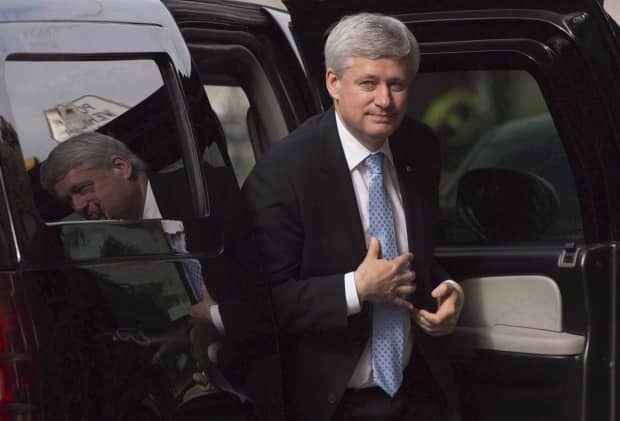Stephen Harper says Canada's pandemic spending has been 'overkill' in podcast appearance

The Canadian government has spent irresponsibly in its attempt to fend off the economic disruption caused by the COVID-19 pandemic, according to former prime minister Stephen Harper.
"It's not a good reaction, it's been overkill," Harper said on an episode of the podcast American Optimist, which was released on Tuesday.
"This is bad macroeconomic policy on an enormous scale."
The podcast, which launched about a month ago, bills itself as "an alternative to the fear, cynicism and zero-sum thinking in mainstream media."
Harper appeared on the podcast with host Joe Lonsdale in Texas. The description of the podcast says the interview was recorded before the current COVID-19 resurgence in the United States but does not say exactly when.
Lonsdale is the founder of the venture capital firm 8VC, which Harper joined as an adviser in 2017.
Harper, who served as Conservative prime minister from 2006 to 2015, touched on a wide range of topics during the nearly 40-minute interview, including Canada's response to the pandemic, the rise of "woke" culture and the dangers of an emboldened China on the world stage.
Harper described Canada's spending strategies as short-sighted and said the massive levels of borrowing could spur dangerous levels of inflation.
In addition to questioning the Trudeau government's spending policies, Harper also suggested the country's vaccine rollout was slowed due to lacklustre execution and the government's poor relationships with drug companies.
"When we were in government, we never had any trouble or problem making sure we had vaccinations and vaccines well in advance of getting them distributed," Harper said. "So it's just a matter of competent execution."
Harper sounds alarm over growing 'woke' movement
Harper also took aim at what he called the "woke university crowd" for its attempts to tear down American and Western values.
"I'm just fascinated by this notion that is just everywhere now, the so-called woke notion that America is a fundamentally racist country," he said. "And yet what I see is all of these supposedly repressed races trying desperately to become Americans and to join the United States.
"It's not that there aren't problems, historical and present, that are real, but the core of our countries are great, they have great futures and there is no alternative."
Harper said the modern political left has become "entirely nihilist" and appears more interested in tearing down existing systems than in upholding and improving upon traditional democratic values.
Canada, allies, should push back against China: Harper
On the topic of China, Harper said the international community has been too hesitant to push back against the country, especially after its crackdown on pro-democracy activists in Hong Kong and its imposition of new national security laws.
China's actions in Hong Kong have "flagrantly violated" its promise to allow the region to operate under a separate political system until 2047, he said.
"I would have urged our allies to respond more forcefully to that," Harper said. He suggested that Canada and its allies could have moved to formally recognize the government of Taiwan in response to China's actions in Hong Kong.
Harper also said he is increasingly concerned that China will take military action against Taiwan in an attempt to squash its government and claim the island.
China attacking Taiwan was unimaginable, he said, but today "I no longer think that's the case."

